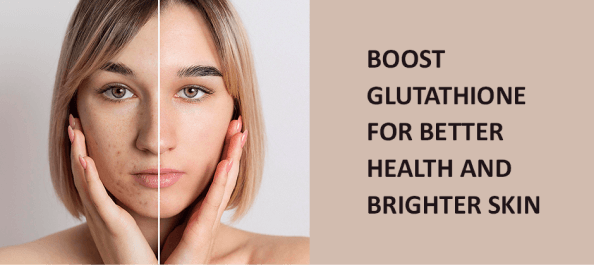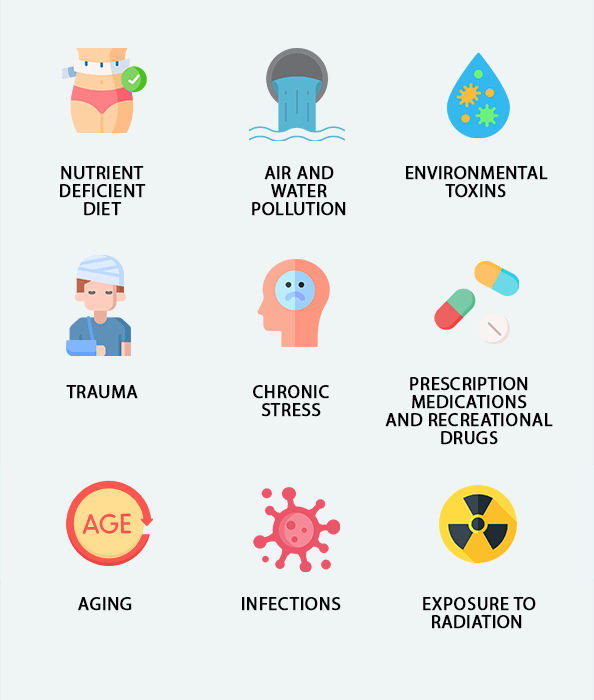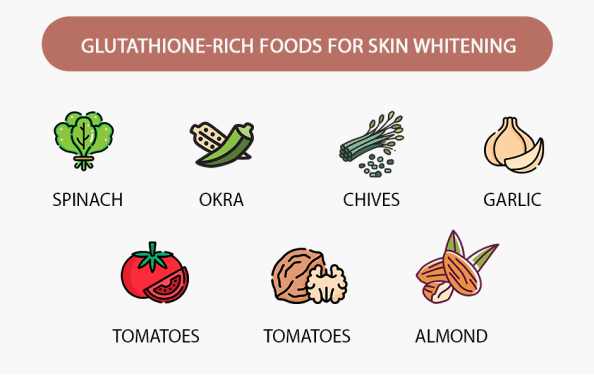
It’s no secret that good nutrition is fundamental to robust health, with many key nutrients playing critical roles. But glutathione stands out as the Queen Bee of nutrients, creating buzz in the research world with nearly 90,000 scientific articles about its benefits.
Learn about glutathione’s health benefits, the foods that boost glutathione, and the best way to improve your glutathione levels.
Glutathione Properties and Health Benefits
Glutathione is an important antioxidant molecule that plays multiple roles in human health, including detoxification and immune support. Glutathione has been found to prevent the signs for aging, and to protect against cancer, heart disease, and dementia. It is used to treat a myriad of conditions, ranging from autism to Alzheimer’s disease.
Glutathione’s antioxidant properties protect your cells from oxidative stress and free radicals that can cause unrestrained cell disintegration and lead to infections and cancer. Glutathione helps protect your liver from becoming overloaded with toxins, ensuring that it can continue to do its vital job of detoxification.
The good news is that your body naturally produces glutathione from the foods you eat. But the bad news is that glutathione can become seriously depleted due to certain lifestyle and environmental conditions.
Factors that deplete glutathione include:
- nutrient-deficient diet
- air and water pollution
- environmental toxins
- prescription medications and recreational drugs
- chronic stress
- trauma
- aging
- infections
- exposure to radiation

Minimizing your exposure to harmful elements and optimizing healthy lifestyle behaviors can help prevent glutathione depletion.
Glutathione in Foods
Dietary factors play a key role in optimizing glutathione levels. In addition to glutathione itself, many nutrients serve as precursors to glutathione production.
Foods that boost glutathione include:
- Fresh herbs like turmeric, coriander, parsley, cilantro and oregano, which are known to boost glutathione and lower systemic inflammation.
- Cruciferous vegetables like onions, garlic, cauliflower, collards and broccoli that contain high levels of sulfur that support glutathione production.
- Whey protein found in foods like cottage cheese, Greek yogurt, sour cream, cheese and other cultured dairy products.
- Organic grass-fed beef liver, which has been shown to boost glutathione production more than any supplement.
People on vegan and vegetarian diets are at higher risk of glutathione deficiency, even with high consumption of sulfurous foods, due to low levels of Vitamin B12, which can only be derived from animal sources.
Glutathione-Rich Foods for Skin Whitening
One unique property of glutathione is its ability to suppress melanin production. Melanin is the pigment responsible for freckles, age spots, birthmarks, sun tans, and darker skin tones. Many people turn to glutathione to reduce areas of melanin pigmentation, with the goal of reducing dark spots and attaining lighter and brighter skin.
Glutathione-rich foods for skin whitening include:
- Spinach
- Okra
- Chives
- Garlic
- Tomatoes
- Walnuts
- Almonds

However, eating those foods alone is unlikely to produce significant changes in skin pigmentation.
The Best Way to Improve Glutathione Levels
In addition to a nutrient-dense diet that contains organic sulfur-rich foods, regular exercise goes a long way towards boosting glutathione production. Resistance training 2-3 times per week, and at least five 30-minute sessions of weekly aerobic activity like walking, swimming or cycling, are recommended.
Sadly, for many people, a healthy diet and consistent exercise are difficult to sustain, especially if you have a growing family, a hectic schedule, or a job that requires frequent travel. One alternative is to supplement with glutathione and other nutrients that support its production.
Nutrient supplements that support glutathione production include:
- Bioactive whey protein
- N-acetyl-cysteine (NAC)
- Alpha lipoic acid
- Folate, and vitamins B6, B9, B12 and biotin
- Selenium
- Vitamins C and E
- Milk thistle (silymarin)
The downside is that consuming so many supplements can be hard on your digestive tract and your liver.
Glutathione IV therapy offers an effective alternative to supplements and foods that boost glutathione. Unlike oral supplements, IV glutathione is infused directly to your bloodstream, bypassing your digestive tract and eliminating digestive distress. And with glutathione IV therapy, you don’t need to worry if you’re getting what you need from your diet to produce glutathione in adequate amounts.
Get Glutathione IV Therapy in NYC
In today’s fast-paced world, getting all the nutrients you need to maintain a high level of health can be difficult to achieve with diet alone. Yet depriving your body of vital nutrients like glutathione can leave you feeling sluggish, dull-minded and vulnerable to infections.
Glutathione IV therapy is a safe and efficient way to improve glutathione levels. It not only supports your immune system and fights inflammation, but it can give you more energy and lighter, brighter skin. To optimize its effectiveness, you can pair glutathione with other nutrients like Vitamin B12 and NAD, to supercharge your energy levels and build healthy cells.
Glutathione is only one of many IV cocktails on our menu at InVita Wellness. Contact us today, and see why InVita Wellness is the clinic of choice in Manhattan for health, beauty and anti-aging products and services.